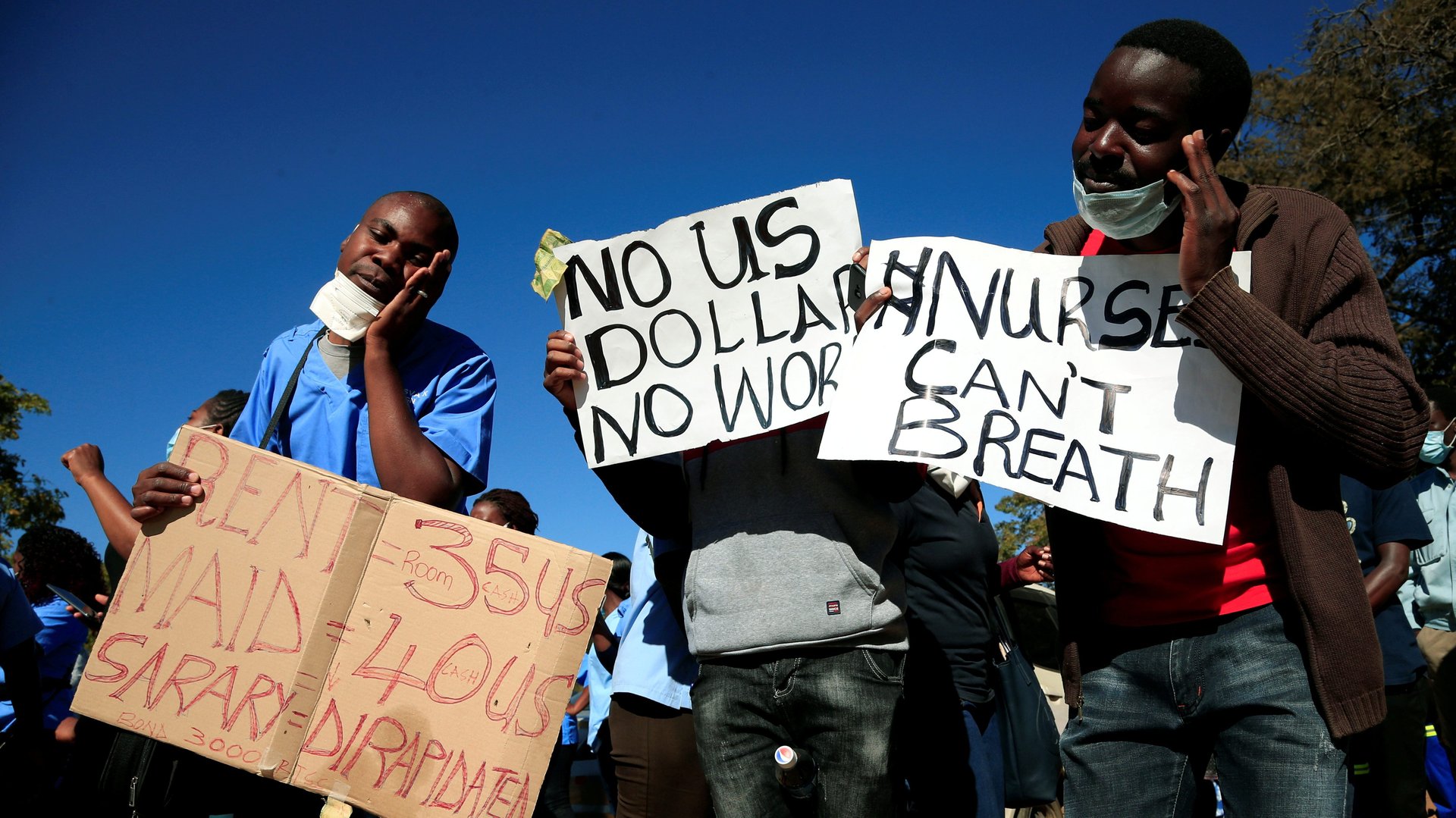Zimbabwe is squeezing its top mobile money platform for users’ data as it clamps down on the media
Zimbabwean authorities are demanding the country’s biggest mobile money platform to give up half of all transaction files for 2020 to law enforcement agents under a crackdown the operator says violates telecom user data privacy rights. It comes as the beleaguered government clamps down on anti-government economic protests and the media, including the arrest of a well-known anti-corruption journalist.


Zimbabwean authorities are demanding the country’s biggest mobile money platform to give up half of all transaction files for 2020 to law enforcement agents under a crackdown the operator says violates telecom user data privacy rights. It comes as the beleaguered government clamps down on anti-government economic protests and the media, including the arrest of a well-known anti-corruption journalist.
The EcoCash platform, with 7 million active users as at the end of March this year, is the most used mobile money service in Zimbabwe but the government now alleges EcoCash has been complicit in money laundering activities which resulted in foreign currency mopped up from the streets through agents and bulk payer lines being externalized from Zimbabwe.
On Friday (July 17) , police agents descended on the company’s head office in Harare armed with a search and seize warrant to confiscate data files containing subscriber and transaction details for the period January to June 2020. This has raised concerns over data privacy and protection of subscriber details as well as transaction information that is now in the hands of police and could be publicly used as evidence against EcoCash in court.
The government has been at odds with the EcoCash for several months as its currency crisis and economic woes have spiraled out of its control. Last month Zimbabwe’s central bank slammed EcoCash for running, what it called, a Ponzi scheme.
EcoCash, which has been a solution to the country’s cash shortages for a long time, is alleged by the government to be fueling street market foreign currency rates. The authories says these functionalities were being abused by street currency dealers who were covertly abusing overdrafts and airtime credit facilities to devalue the Zimbabwe dollar.
The July 17 raid has forced Econet, the mobile operator which holds the EcoCash subscribers, to challenge the government’s search and seize warrant in Harare courts, where it has argued that the warrant be set aside. In a country where people are sensitive about private information falling into the wrong hands, ordinary Zimbabweans, opposition activists and data privacy campaigners are against the latest move by the government and the Harare High Court now has to determine on government having access to such personal data. Econet argued in its court filing on Monday that the directive by the government for it to hand over sensitive subscriber and transaction data was “unlawful” and constituted “a violation of the applicant’s right to privacy and also the right of privacy” of its subscribers.
“Full subscriber details of each user means they have your name, cellphone number, address and all EcoCash records. This is a far reaching breach of privacy. Imagine what Zimbabwe police can do in this authoritarian environment with such extensive data,” says Fadzai Mahere, law lecturer at the University of Zimbabwe and spokeswoman for the main opposition MDC Alliance party.
The political temperatures are boiling over in Zimbabwe ahead of opposition backed anti-government protests scheduled for July 31. The pressure around this has seen Zimbabwean authorities arrest the lead organizer of the protests, Jacob Ngarivhume and prominent journalist, Hopewell Chin’ono who is also an anti-corruption whistleblower on social media. Zimbabwean police said the two had been arrested for “incitement to participate in public violence”.
Even as health workers protested this month on over economic hardship during coronavirus, Mnangagwa’s administration says any future protests and demonstrations should be put on hold as coronavirus cases have been spiking, with local infections also rising and bringing total number of infected to nearly 2000 amid more than 25 deaths.
“The arrests of Chin’ono and Ngarivhume are designed to intimidate and send sending a chilling message to journalists, whistleblowers and activists who draw attention to matters of public interest in Zimbabwe,” said Deprose Muchena, Amnesty International director for East and Southern Africa.
Sign up to the Quartz Africa Weekly Brief here for news and analysis on African business, tech and innovation in your inbox